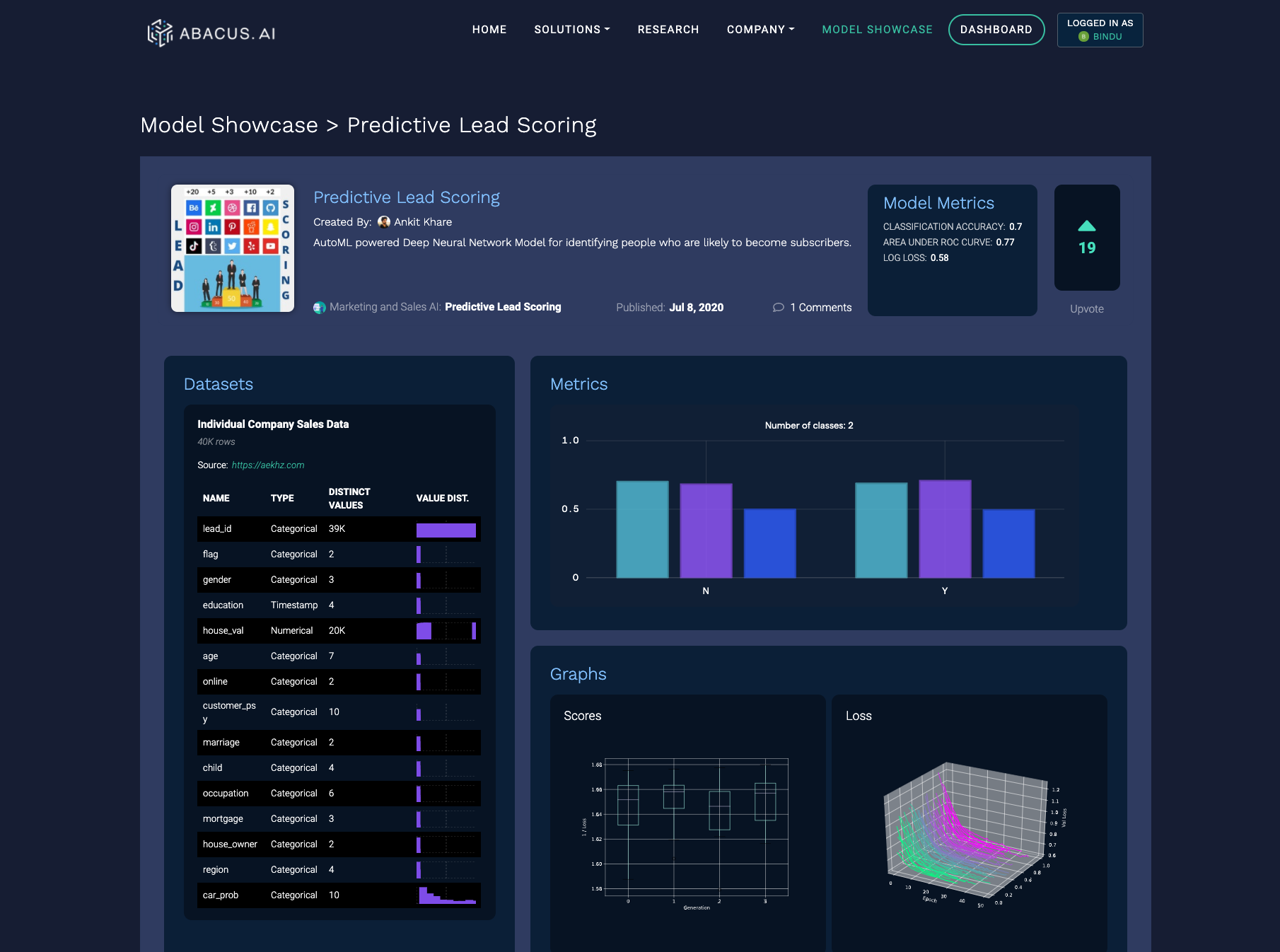RealityEngines.AI becomes Abacus.AI and raises $13M Series A
RealityEngines.AI, the machine learning startup co-founded by former AWS and Google exec Bindu Reddy, today announced that it is rebranding as Abacus.AI and launching its autonomous AI service into general availability.
In addition, the company also today disclosed that it has raised a $13 million Series A round led by Index Ventures' Mike Volpi, who will also join the company's board. Seed investors Eric Schmidt, Jerry Yang and Ram Shriram also participated in this oversubscribed round, with Shriram also joining the company's board. New investors include Mariam Naficy, Erica Shultz, Neha Narkhede, Xuezhao Lan and Jeannette Furstenberg.
This new round brings the company's total funding to $18.25 million.

Abacus.AI's co-founders Bindu Reddy, Arvind Sundararajan and Siddartha Naidu (Image Credits: Abacus.AI)
At its core, RealityEngines.AI's Abacus.AI's mission is to help businesses implement modern deep learning systems into their customer experience and business processes without having to do the heavy lifting of learning how to train models themselves. Instead, Abacus takes care of the data pipelines and model training for them.
The company worked with 1,200 beta testers and in recent months, the team mostly focused on not just helping businesses build their models but also put them into production. Current Abacus.AI customers include 1-800-Flowers, Flex, DailyLook and Prodege.
My guess would be that out of the hundred projects which are started in ML, one percent succeeds because of so many moving parts," Reddy told me. You have to build the model, then you have to test it in production - and then you have to build data pipelines and have to put in training pipelines. So over the last few weeks even, we've added a whole bunch of features to enable putting these things to go into production more smoothly - and we continue to add to it."

Image Credits: Abacus.AI
In recent months, the team also added new unsupervised learning tools to its lineup of pre-built solutions to help users build systems for anomaly detection around transaction fraud and account takeovers, for example.
The company also today released new tools for debiasing data sets that can be used on already trained algorithms. Automatically building training sets - even with relatively small data sets - is one of the areas on which the Abacus team has long focused, and it is now using some of these same techniques to tackle this problem. In its experiments, the company's facial recognition algorithm was able to greatly improve its ability to detect whether a Black celebrity was smiling or not, for example, even though the training data set featured 22 times more white people.

Image Credits: Abacus
With today's launch, Abacus is also launching a new section on its website to showcase models from its community. You can go build a model, tweak your model if you want, use your own data sets - and then you can actually share the model with the community," Reddy explained, and noted that this is now possible because of Abacus' new pricing model. The company has decided to only charge customers when they put models into production.

Image Credits: Abacus.ai
The next major item on the Abacus roadmap is to build more connectors to third-party systems so that users can easily import data from Salesforce and Segment, for example. In addition, Reddy notes that the team will build out more of its pre-built solutions, including more work on language understanding and vision use cases.
To do this, Abacus has already hired more research scientists to work on some of its fundamental research projects, something Reddy says its funders are quite comfortable with, and more engineers to put that work into practice. She expects the team will grow from 22 employees today to about 35 by the end of the year.